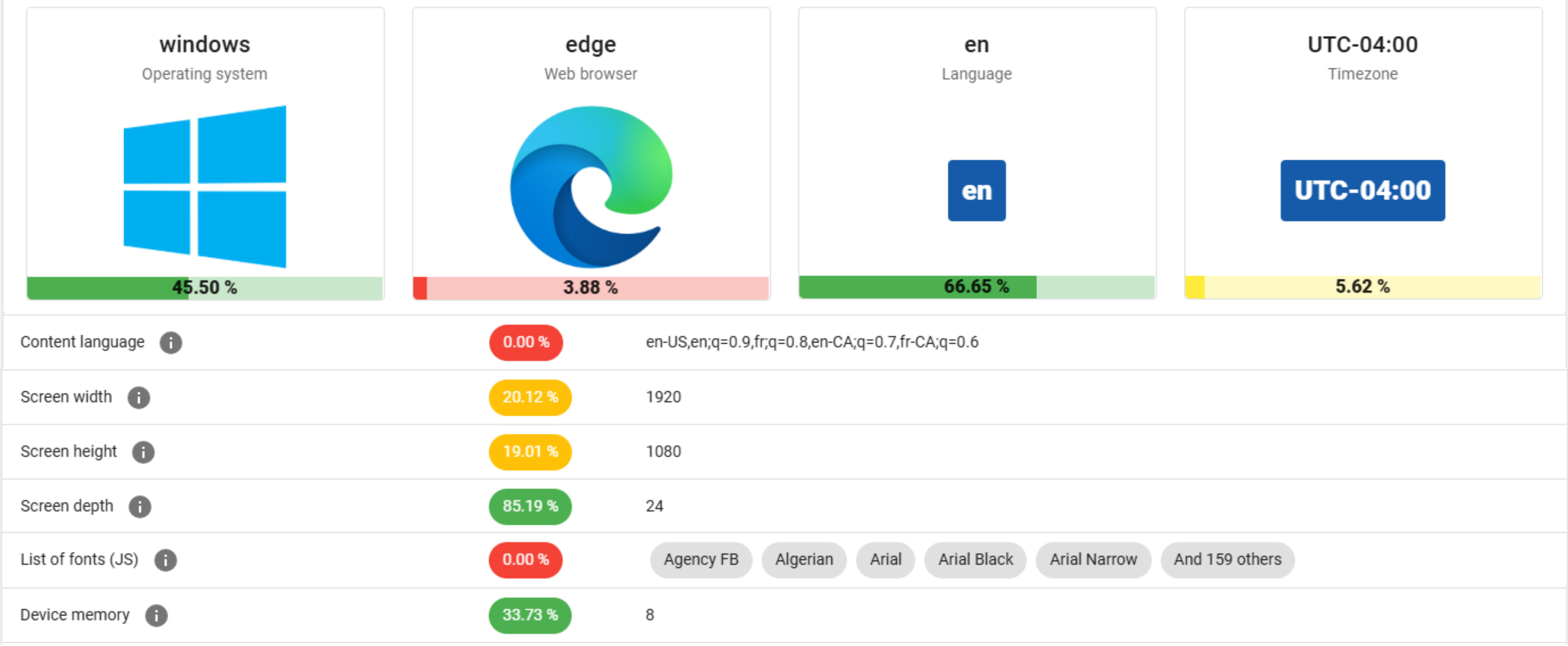- cross-posted to:
- privacy@lemmy.ml
- cross-posted to:
- privacy@lemmy.ml
Amidst the glossy marketing for VPN services, it can be tempting to believe that the moment you flick on the VPN connection you can browse the internet with full privacy. Unfortunately this is quite far from the truth, as interacting with internet services like websites leaves a significant fingerprint. In a study by [RTINGS.com] this browser fingerprinting was investigated in detail, showing just how easy it is to uniquely identify a visitor across the 83 laptops used in the study.
As summarized in the related video (also embedded below), the start of the study involved the Am I Unique? website which provides you with an overview of your browser fingerprint. With over 4.5 million fingerprints in their database as of writing, even using Edge on Windows 10 marks you as unique, which is telling.



You also need to change the devices browsers, extensions and timezones to stay anonymous or buy a device and set the most common fingerprint settings, so it is harder for those companies to track you down. It is a slippery slope, and you can check your browser fingerprint and avoid adding unique settings, extensions or anything that can help them to track you.
Most fingerprint resistant browsers set the time zone to UTC. Extensions should be limited to uBO as the extensions add to the fingerprint more than they hide you.